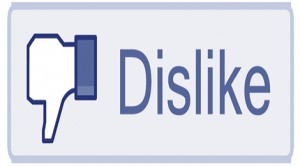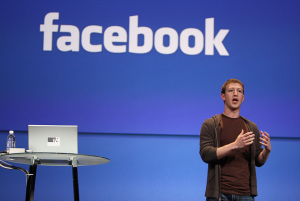 QUEZON City, Philippines (September 28) – Imagine posting a picture and expecting that it will get lots of ‘likes’, but to your surprise, people ‘disliked’ it instead. Would you be offended or would you accept that it is a part of the latest concept to improve the site? This is the dilemma of many Facebook users around the globe because of the recent announcement of Mark Zuckerberg, the chief executive of Facebook Inc., about the implementation of the ‘dislike’ button plan.
QUEZON City, Philippines (September 28) – Imagine posting a picture and expecting that it will get lots of ‘likes’, but to your surprise, people ‘disliked’ it instead. Would you be offended or would you accept that it is a part of the latest concept to improve the site? This is the dilemma of many Facebook users around the globe because of the recent announcement of Mark Zuckerberg, the chief executive of Facebook Inc., about the implementation of the ‘dislike’ button plan.
For many years, lots of Facebook users asked Zuckerberg to put a ‘dislike’ button on Facebook for they are not comfortable liking a post about death, crimes, and many more. Still, they want these posts to trend and spread awareness; but in order to do that, millions of likes should be given. That is why the only solution that they see is to have a ‘dislike’ button to express condolences, sympathy, and empathy. Zuckerberg refused these requests back then because he does not want Facebook to be a site where people ‘downvote’ each other. A word coined from Reddit; another social networking site. In an interview at Menlo Park, he said, “there’s something that’s just so simple about the ‘like’ button’, but giving people more ways of expressing more emotions would be powerful”. Surprisingly, this year, he declared that he will indeed grant the long-term request to respect posts that will be inappropriate to ‘like’. He added that he and his team are currently working on it now.

Though it is uncomfortable to ‘like’ a post that projects a depressing and disturbing impact on us, having a ‘dislike’ button will not make it better. In fact, it will give the internet trolls an opportunity to disrespect and degrade people online. Cyber-bullying will be promoted and people will have lower self-esteem. It is inevitable that the users will feel bad because of a ‘dislike’ since it seems that the basis for beauty and popularity nowadays are the number of ‘likes’ that a person get. Just think of the effect that the ‘like’ button brought in our society. It has turned many people, especially the young ones, into narcissistic individuals. All they care about are ‘likes’, comments, and how they will get more ‘likes’. It is certain that implementing a ‘dislike’ button will have a negative effect as well. Although Zuckerberg has made it clear that the new feature will allow people to express “empathy” according to CNBC, we do not have the assurance that most people will use it mainly for this purpose.
So is it really necessary to put a ‘dislike’ button on Facebook? I don’t think so. If we want to extend our sympathies, why don’t we do it in a personal and more appropriate way? Like messaging the people involved or sending help. That way, we can make sure that there will be an immediate action towards it. Or if adding this feature cannot be prevented, they should replace the name of the button to ‘sympathy’ button, or ‘empathy’ button. For the word ‘dislike’ have negative connotations. Either way, let us stop relying on technology to handle our duties as a human being. The essence of being there for each other can only be seen in the presence of genuine assistance from a fellow person. Simply ‘liking’ or ‘disliking’ something online will not improve the situation.
(written by Carissa Lazaro, edited by Jay Paul Carlos, additional research by Lovely Ann Cruz)







